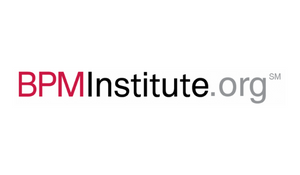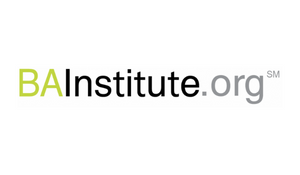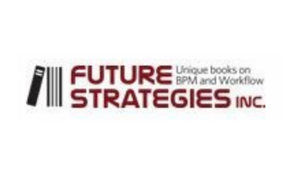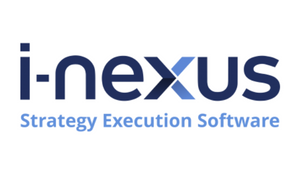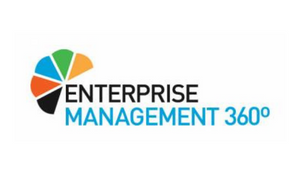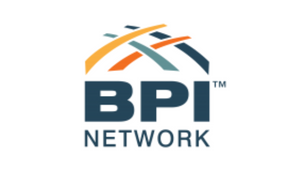
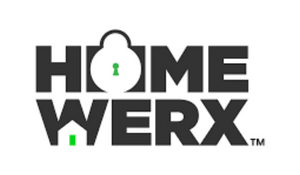
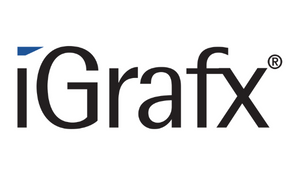

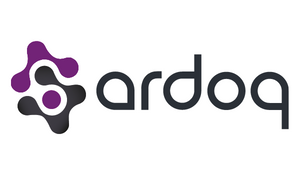
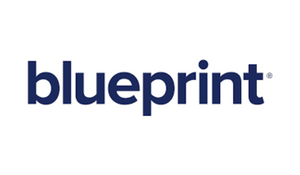
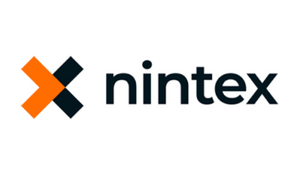
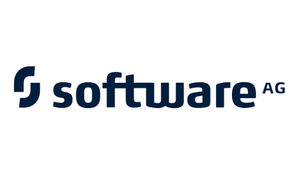
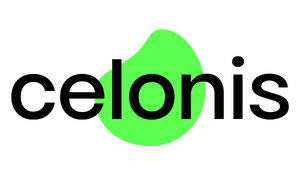
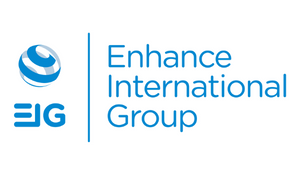
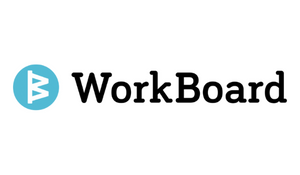
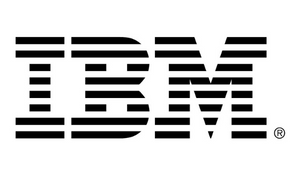
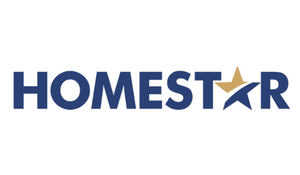
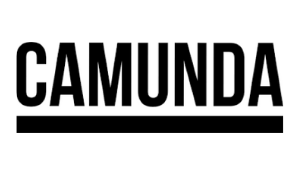
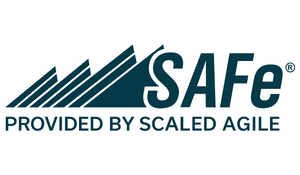
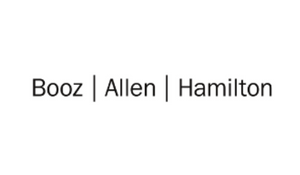
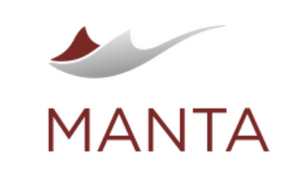
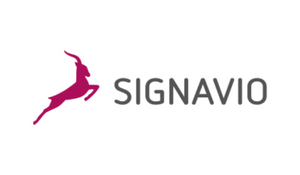
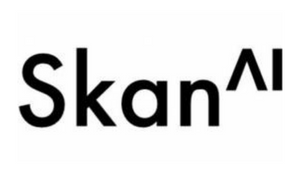

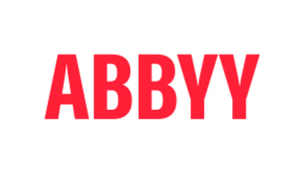
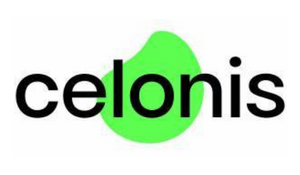
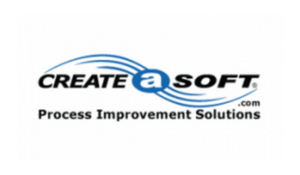

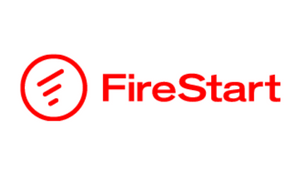

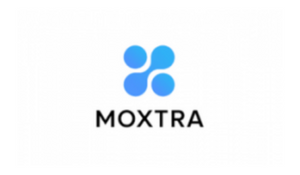
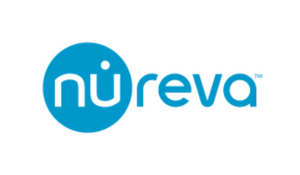
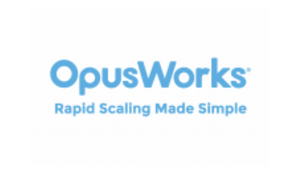
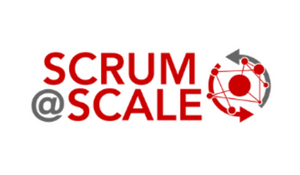
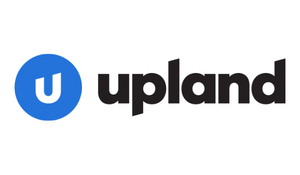

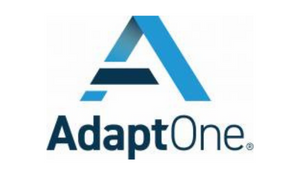
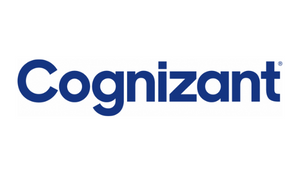
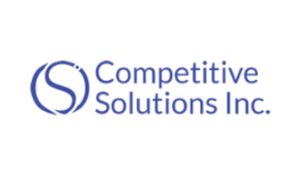
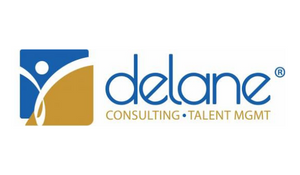

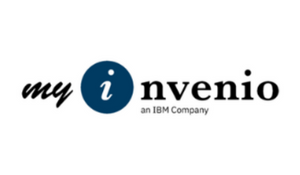
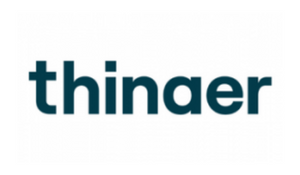
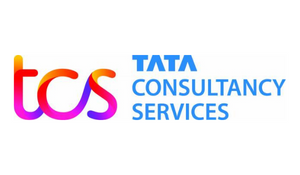
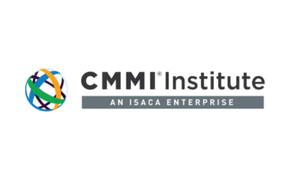
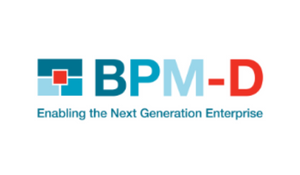

Courtesy of Excellence & Innovation's Jose Pires, Morningstar INC's Anu George, Thought Exchange's Dessalen Wood and Google's Yuval Dvir below is a transcript of his speaking session on "The Future of Work - The impact of Covid19 & the development of the 'New' Normal" to Build a Thriving Enterprise that took place at BTOES From Home.
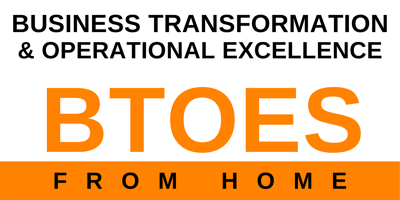

Session Information:
The Future of Work - The impact of Covid19 & the development of the 'New' Normal
An exploration of the key business transformation and operational excellence challenges, emerging trends, risks and opportunities that businesses will be exposed to as we emerge into a post pandemic environment. What has fundamentally changed and what do you need to survive and thrive.
Session Transcript:
Hello everyone, welcome back to the state business transformation operational excellence world summit where we accelerate culture business and digital transformations and where great ideas and great people can connect and I'm very excited about having great people with me right now on stage I have Dessaline wood and Anu George who's gonna who are going to be with us I'm going to do a brief introduction on both of them we may also have another guest speaker showing up uh soon and then I'll keep that as a surprise until he is able to join us and and i want to remind the audience that if you click on your app and you click on this session and you open up the communication channels via chat and uh the questions i would like you to ask questions throughout our session.
I'm going to be monitoring those questions and we're going to relay those questions back to our panelists in real time so make sure you ask Questions that are relevant to you to your contacts because we know that that's how you get the most value out of the discussions we're going to have here with me today I have three tremendous speakers and we have you about just joining us from google and that's fantastic I'm going to do a quick introduction on each one of them of course the topic of our keynote panel here is the future of work and how the covet 19 has impacted you know our lives and the way we work and uh and we're gonna go deep into this uh but let me briefly uh just introduce our guests um who are gonna be part of the panel first on uh to my uh to my side here i have desolate wood that's something with is an innovative hr executive seasoned speaker and coach and she specializes in Passionately leading learning and development and human resources teams at some of north America's most respected organizations throughout her career desolate has coached senior leaders and built teams from the ground up in addition to designing and delivering multiple original programs.
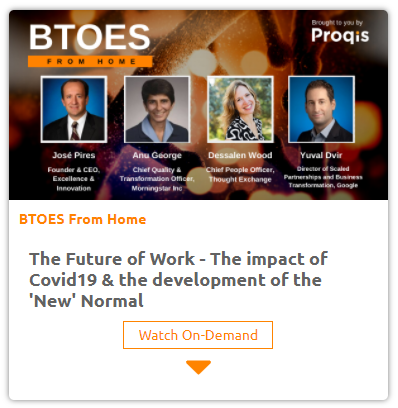 That's it's wonderful to have you with us thank you val is just below me here in this on this frame and you vow the verb the director partnerships and business transformation at google he is a business transformation leader with hands-on experience on how to manage technology people data and products that that lead to real change innovation and growth in global organizations he's experiencing leading in building and leading high performance teams for the challenges organizations face when dealing with digital transformation scale and innovation by leveraging technology human behavior and the cultural dynamics in the workplace his teams drive a habit and behavioral change that promote a more holistic data-driven user-centric and agile mindset in people leading to a ascalable and sustainable growth for the organization so thank you yuval for being here with us and uh certainly not least one of my favorite all-time women executives.
That's it's wonderful to have you with us thank you val is just below me here in this on this frame and you vow the verb the director partnerships and business transformation at google he is a business transformation leader with hands-on experience on how to manage technology people data and products that that lead to real change innovation and growth in global organizations he's experiencing leading in building and leading high performance teams for the challenges organizations face when dealing with digital transformation scale and innovation by leveraging technology human behavior and the cultural dynamics in the workplace his teams drive a habit and behavioral change that promote a more holistic data-driven user-centric and agile mindset in people leading to a ascalable and sustainable growth for the organization so thank you yuval for being here with us and uh certainly not least one of my favorite all-time women executives.
We have a new George with us Anu is the chief operating officer for technology and transformation and Morningstar the leading independent investment research firm prior to Morningstar Anu has worked at unilate unilever and gee she works at the intersection of emerging technologies strategy leadership and operational excellence she is most energized when she is helping leaders discern the trains of the future and help them successfully embrace the future she's a frequent speaker on topics such as the future of work which is the panel topic that we have today driving transformations diversity and inclusion and of course business excellence and leadership.
I know it's a privilege and to have you with us in the channel as well all right ladies and gentlemen i'm gonna start by posing um an open question here just to get it started have a little bit more of a of a deeper appreciation for your personal and professional perspectives on on how this pandemic has shifted things for us so tell us a little bit about uh knows within a couple of minutes uh what your experience has been since we have been affected in a global scale by by this pandemic and how you have seen the shifting work um take place so I'm going to start with um um deaths and then we'll go down to uh you vow and the new in that order sounds great you know it's an interesting one because personally and professionally it had a huge impact on me uh last year for you flyers you understand the impact of this I believe I managed on one you know airline to get to 108 flights.
So I got to be like the super elite status because I was on a plane all the time uh going to conferences meeting with clients uh you know definitely I had a remote role anyway so our corporate office is you know three time zones away and so I really have had years of being on the road and years of really framing my whole life around in-person meetings so it was a really big shift you know in march to just be grounded and at first to wonder you know is there is it possible to have the same kind of impact when you're not in person and you know watching the the world adjust to that at the same time as you're adjusting to it and I think that for me that was a big impact because the amount of what i could get done just burst.
You know when you're not flying and in delays and on runways for four hours you don't realize how much of your life is being eaten away I mean similar to people who i guess you know commute to work and so I've just found creatively it's been an explosion for me in terms of really focusing on content and product and and working with customers much more intimately so what i thought would separate me actually provided me a wonderful amount of time and energy to put towards more productive uses and i wonder about you know the tremendous waste of energy and the resources that my past existence has been for the last 20 years and whether it's going to return to that or not because frankly I'm a better uh i say I'm a better business person as well as a better parent uh as well as a better you know to the environment right now.
So I'm feeling pretty positive about the changes although initially i thought they were going to be devastating that's a terrific perspective um you've how have you experienced all the shift that's going on around us no and at least i think these are interesting sort of comments because i think what was mentioned i think is is being um replicated in other areas as well and more and more people are examining and the business and how organizations run with a different sort of lens i mean at google you can just imagine the amount of business travel out there uh in some other organizations even more and the question is is it really necessary and maybe there's a bit excessive.
It maybe has become almost some of the perk of of the work and as we mentioned i think the priority of the world as a whole needs to change i think there are other pieces at play over here if we got hit with this biology pandemic right now we may get hit with another thing from mother nature and climate and other issues and building a sustainable business which is obsessive about only growth without understanding there are sort of other implications out there is not the way to go my hope as well as a lot of others people's hope is that you know from challenges.
You grow so will the world grow from this challenge or not I'm not certain so I'm an optimist but who knows anymore but looking at again from from my perspective I think I've been used to working sort of virtually remotely and for some organizations in some classes of work it's I guess much easier and it's much more intuitive um so that hasn't really sort of changed the issue is that actually the workload has increased because you're always at home you're always accessible and people sort of ping you and there's no sort of way too too high i mean i know that there's some wi-fi in airplanes but I actually found it sort of a place to rest when you can get on a plane and nobody can bother.
You for at least sort of 8-10 hours that's fantastic we don't have that anymore and the other thing is that boundary between work and life which honestly i never really believed that it was there i mean we're not a different completely different character at home when we're from at work we're not a different sort of person i think the boundaries have completely sort of um moved away um which to me is much much more intuitive because i always thought that i'm okay of t with taking a certain sort of message or looking at the phone even if it's in the weekend if it allows me sort of to normalize the the the work and the flexibility across across the world so there's been a bit of that now where would all these what where would all this go in the future i think um especially with the vaccines and everything sort of coming on um you know we all would like to see more sort of change but i think if I'm honest i think 80 percent at least if not even 90 would go back to sort of normal with the commuting and the others and we'll see sort of changes in the edges um but it will be sort of beneficial for a lot of people especially.
You know from a commuting wise maybe business travel would would potentially sort of go down and the other thing from a cost perspective or an hr perspective usually organizations especially multinational ones or global ones look at it as a cost of labor or how is how expensive or cheap it is to find labor in several locations and the cost of living so how expensive is it to live in London compared to Chicago New-york or whatever if we're all working from home or working from anywhere in that sense then how do these sort of two metrics play a part or can we throw them out the window and focus on paying what we should be paying for which is talent so there's a lot of questions that are coming up and we'll see what will happen it's an interesting time for sure very good very good you raised some really interesting points that we hope to go a little bit deeper on those uh uh thank you for that you vow Anu tell us a little bit about your experience what has been um your experience as a as an individual of course as a professional leader of a financial organization how that has been for you your audio is not dropping for right.
Now uh I know can you do a check just make sure that you're not muted on your audio no yeah no maybe Mario is not comfortable all right welcome to 2020. that's right and this is very much the future of work isn't it that we're dealing with it right now i mean we're just talking to her five minutes ago and everything was fine and then something probably changed the computer settings or the headphones but right now your audio is not coming through to us you know it's funny that if this is happening because one of the things i talk about is a big shift in work right now is it first the ability to remain conscious just to see if there's anything that changed there in your on your microphone settings but maybe maybe on the screen itself.
I mean there's an option of muting that and it turns from green vice versa no yeah yeah did you if you hover over the screen that we're on right now uh there is a microphone icon there just make sure the microphone icon is really pretty yeah i think she did it yeah yeah you mean again hover over the screen and see make sure that the microphone icon is on on the screen as you hover yeah we can we still cannot hear you she might maybe go out and come back that's the other my favorite yeah we can come back you need to log off anew and log back on try to do that log off the session and log back on because uh and then the conference producer can help you also come back in and test is this better yeah yes we can hear something i just went in and went after i took this idea i said let me just go ahead and go on and it's working so future of work here okay yeah this is such a great example of the realities they were dealing with right.
I mean we i was in a board meeting the other day and the CEO was talking and he had the same issues that you did and this is really interesting because he actually is not most comfortable with technology and usually has an assistant right there to deal with the technological issues but now he is he's broadcasting to the board and his assistant is not available to help him and this is a real real set of real things that are happening so I'm glad that we have your audio back this is a great example for the audience we did not like playing this just to make a point um this has really happened so anu tell us about your perspectives about work and all these different things that are happening right now and how it's shifting the way we work and live first of all thank you for having me jose and hi des and have you all you had some great thoughts and my experience is actually a mix between what this and you all shared you know when this happened in march.
We were all thinking oh we're going to be back in office in 2-3 weeks this is nothing big and now we are literally nine months in and you know we can't even see when exactly we're all going to go back to the to the office and if i was to look back at the experience I would kind of use a few words to describe it number one i would call it liberating why is it liberating because i think it gave a lot of time back to people and people could use just like this mentioned she's not spending hours waiting at the airport or waiting on a tarmac for the flight to take off uh same thing people are commuting less they you know i mean i personally spend three hours a day commuting because i live a little far away from my office so it's been extremely liberating in terms of how i can use my time i can now take I've always had a life where my work and life co-mingled because i would always have early morning calls and night calls because i have remote teams in Asia and Europe so but now i don't feel stressed when i have to take a late night call or early morning call i can really work both ends of the day now because i am at home i don't have to commute i think the second thing which i have found is there are three other words i would say one is we went into a world of equality earlier it was so unequal.
When you were sitting in the head office in a conference room and there were three people calling in from remotely the people remotely were always unequal whatever you did to make them feel included be inclusive they never were at par now everyone is equal you could be in India you could be in china you could be anywhere in the world but you're equal i think the other one is deeper connections and you know you really think that you want to be face to face but i found because I'm on zoom i have much deeper connections because there are so many lunches i have but now I can have a call with someone in India and you know we could have a call with someone i the other day I spoke to a gentleman in California.
I don't know him from Adams met him for the first time we had such a lovely conversation on zoom because zoom just brings the person right up to you I mean it's you know if you assume the person is next to you and you're not too worried about the technology and the virtual aspect of it you could really connect and i think the third thing is i would say it brought out the hole in the human being and what i mean by that is it's bring your whole self to work we always said that and we are really bringing our whole selves to work you know suddenly on the screen you'll find a five-year-old running and hugging their mother you find the my cat was just here and she's disappeared right now but you begin to see people in their whole true selves and we don't just see the work aspect you just don't see so and so person as your colleague who's sitting next to you in the office but now you begin to see their life their family their work so you have a lot more sensitivity and connection to that person because you're seeing them fully so in many ways i think it has brought a lot of positives uh if we can only learn how to adjust to this new reality and don't cling to the way.
We used to work that's those are those are terrific perspectives uh thank you thank you for that i know uh you talk a lot of very important things from liberating trade quality to deeper connections um all of you actually have a bit of a positive perspective on this and i think that's part of the reason you're successful leaders like you are i think successful leaders ultimately are optimists who deal with reality and you you have that in your in your in your introductory remarks um i'm curious about your uh and before before i go into that let me mention to the audience again go ahead and write your questions okay in the questions box because I'm monitoring that and the questions that come in that will relate them directly to the to the to the panelists here so ask questions that you're interested in you know maybe they talk about those things for example they're related to the digital world but you work in hospitality right now serving clients.
You're not so happy about the zoo meetings because you know you it's it has completely changed the way you work so talk about your own personal experiences and the questions that you have from your from your own perspective so feel free to to ask those questions and any other questions that advantage your context so with that in mind i'll keep going here because there's so much to to ask about this topic and uh and my question is that right now we have an assumption that you know we have test vaccines and they are having positive results we should be able to deploy those and maybe you know by the middle of next year third quarter of next year we'll have created an environment where potentially we have normalcy and normalcy defined as the way things used to be my question to the panel is how how much will go back to where it used to be and how much will really never go back to the way you used to be so tell me about from your perspectives what do you think will go back to normal and what you think has been permanently dislocated.
I you know if you want me to take a stab at it I could start a little but I personally think what we saw in covet was not really brought about by covet these trends were anyway happening i had attended a course in singularity university almost a year close to a year before covert was hit and i remember one of the speakers came and said he said you're slowly going to see a trend towards deurbanization and then he was sitting and saying what's he talking because for hundreds of years we are seeing the trend towards Urbanization i mean the big cities have i think about 50 70 percent of the world population now in the bigger metros and the cities basically so i mean you were just thinking about that and now you see that happening with kovitt so i think what kovan has done is actually behave like a catalyst to really speed up the trends that were anyway happening ar and vr were anyway supposed to come which was supposed to make remote working very easy you could be sitting on a beach and connecting with your office.
I mean you know so it was anyway going to happen so i think the question and if you really think about it 30 40 years from now think about your grandchildren who are working and imagine you're telling them hey are you going to your office from nine to five the kids are going to say what are you talking about there's no such thing as office so I think the world has permanently shifted the question is people are still not used to the new change so you just can't say you're going to remote work forever i think there's going to be a lot of hybridization people still have the need for connection you want to meet people physically so you're still going to use the office for doing teamwork uh you know meeting face-to-face doing brainstorming collaborative work uh you know things like that but the use of the office is going to be slightly different as we gradually move towards a world where there will be more and more remote working that's a new vowel do you have any anything you'd like to add to them and who said some great things i agree with her that i feel that you know what's interesting is you know.
I've had three children and you go on maternity leave and you're gone for a year in Canada and your belief is like it'll never be the same I'll never adjust and then two weeks later it's like you never left so I'm well aware that you can re-adapt to what you thought is crazy really quickly you know that's the thing about us is as a species we adapt that's why this feels normal after nine months even though I had 25 years of being on the road and this feels more normal than that so I know there's a tendency to go back but I agree with the new that this is really just something that was happening gradually just became sudden it was happening anyway and so um you know I think this idea of the the future of work you know what I see now is I think companies will be getting together more for the culture for bonding for you know that piece because things like collaboration innovation that still has to be happening constantly and there's a lot of digital tools that you can use and I think.
What people are hungry for is just the human connection of just hanging out and going for dinner and that kind of thing and and if and i have my feeling is that you know back to what you said i knew before which i really loved is this idea of like one person on a call and everybody else in an office and how clunky that was you know already technology was starting to zoom in on each person so that it democratized that situation so things were starting to happen to address these pain points so my my hope is that we don't go all the way back but I do think that there's certain legacy businesses I mean look at who's not surviving right now there's a number of businesses.
They're not surviving they were actually just slowly not surviving before it just got faster so a lot of retail a lot of service you know they were just sort of you know you know moving the deck chairs on the titanic and then you know it started to go faster and what I'm excited to see is the industries that pop out that um accommodate this new world and make it easier not to go back because right now we're in the middle of like well we have offices but they're empty and we have this but we don't have these collaborative space or whatever the future is going to be I'm excited for um in the absence of these businesses uh the new work paradigm to start this is great this is great because you have stored a lot of thinking in our audience right now and I'm seeing a lot of great questions coming through here and I'm going to spread the next one to you on this you vow Hannah miller um you you made a comment early on about the the bland there there is some people say the work life balance is a hoax there is no such thing it's kind of a modern structure that we created it's always being a bland of some sort and that creates all sorts of problems as well if you're thinking from blend versus a balanced perspective so on that topic Hannah miller asked some really interesting uh make some interesting points here so she says great perspectives and why I appreciate all of the positives is anyone out there seeing the burnout in the organizations of people feeling too much of a blend between work and personal life is there a feeling of needing to be always on and providing productivity because they aren't seen in an office eight hours a day.
So you have how how are you dealing with that personally but also in an organization that's very innovative like google how you're dealing with that in the ecosystem yeah so I think ever ever since uh the pandemic started it was very important for me and i have sort of kids myself and a school was closed as well for a while now anyone who is a parent and you have two working parents and you have kids running around the house that you also need to care for them and all the other sort of admin i mean it doesn't work and so the key thing for me initially is while we should be sort of happy that we still have jobs because a lot of people went on parallels and were sort of there's there's a huge part that maybe is not part of the conversation.
That we're having today that are not sort of enjoying in a way at all what's been happening especially on sort of the high street and and other jobs that can have sort of this remote option but to me the most important thing is to give my group and team the flexibility that they need and the way to provide them the flexibility is to reduce as much as possible any sort of unnecessary meeting overhead or any sort of discussion just like we all mentioned before that organizations are not known especially as they get bigger and larger to be as efficient as they can and there's a lot of unnecessary things going on then reducing those would bring time back to sort of each employee and allow them sort of to manage the overall workloads.
I mean some things would never i hope would never go back and i think that i agree there's acceleration of a trend for example the trend of nine to five i mean that's to me is always ridiculous there's works work to do and if you do the work then i don't care what you do with the rest of the time just like sometimes i use the time when it's work time and i go to the supermarket then so so should others as well and having that empathy as a leader to understand that hey the employees as well deserve that time or or they have also other issues would make would make actually actually remote work working the problem and that's why it goes back eventually to leadership is that not all leaders have in a way that confidence in them and that's why the office when you ask yourself why office and it benefits certain type of leaders as well especially.
I guess in the in the control space you see the person over there you know when they come when they leave when we we've all suffered the issue of what time do you pack your bag and get out of the office and the looks that you get or i mean they could be sort of a jokingly but there's always any issue over there what's great about remote work is it removes all that stuff but for the leaders that are sort of less less confident then they tend to sort of um increase in a way their confidence or their management of uncertainty by setting so many meetings and structures and whatever and and to me that's sort of uh um useless the other thing is that we used to as a team have a lot of drinks and and off-sites and fun things to do now it's hard to do that when you're stuck in front of a computer in some cases.
I think people try to do against offsides for three four hours you know fun offside but again if I have to sit another four hours in the computer and what's the fun in that so we need to understand that yes remote work is great but there's some things that cannot actually translate perfectly to a remote work and if we have fun going to a pub and drinking having a drink in front of a computer for two hours is not exactly the same thing fantastic I want to build on this on this commentary by UFO and and i literally specifically want to get now the women's perspective on this and it's not just it's not a gender issue by any means but i see a couple things that trigger that thought one is that i see some some women here asking some questions to the panel uh disproportionately number of women asking questions and uh and what i have seen in some of the most recent studies.
About how the pandemic has impacted people there is a disproportional negative impact on women because you know whether we like it or not there is still a social construct that expect women to educate kids or or you know do some of the things around the house and work and now the kids are not going to school they're doing virtual learning and that so in in what these studies have pointed out is that women have taken on disproportional burden during this time as women and leaders in law in organizations there are part of this acceleration.
I'm just curious about um not just from your personal perspective but from a uh the perspective of women how has this affected women and what are some of the ways that people can deal with it that's such a great point you know there's a lot of articles talking about this being like the biggest setback for women since like the 88 you know taking time off or feeling like they can't give a hundred percent and you know what's happened is cove what you know when i think for the future of work we won't have necessarily children at home while you're working so this is really a specific thing that you've all touched on which is that you know had to also parent in the house and take care of maybe your parents and grocery shop for the elderly so this burden of i have to be a caregiver and an employee would not typically be is that's not part of being a remote employee that has to be a remote employee that has their family in their house 24 hours a day with you know no uh no distractions and uh when those kinds of things happen sorry that's the to your point.
I mean people call it work from home initially when the pandemic started and as you mentioned we had the kids at home and everything it wasn't sort of uh working from home trying to manage from home if anything yes yeah you tried and and everything you know whether it was not enough bandwidth from your wi-fi to support everybody being online at the same time to not enough desks i mean i remember went to idea to get desks for my kids and there were no legs left like all the legs were gone i don't know why they have more tops and legs if anybody works at idea you need to fix that but the point was is that like it was just it's a strange time to assess whether this was a terrible impact for women long term certainly during when there's a crisis i mean anybody here and I'm sure that when you're writing in if the teacher calls the likelihood that you're going to go in versus your partner is high if somebody's sick if there's parent teacher interviews if there's teacher gifts to be bought it's always been a load that women have shared have had carried and I think that there's been a lot of stress at thought exchange.
One of the things that we were asked to do is to put together some kind of proposal for caregivers and parents that took into account a flex time that was slightly reduced work so it was like acknowledging that you're actually not going to be available and that you can block it in your calendar and that we're going to carry you for this period because this is a a pandemic and so you don't have to try to hide it or squeeze it in but if you need to be gone from 11 to 1 to to take care of your children then we want to encourage that flexibility and while individual leaders were doing it people really wanted the organization organization because I think they still felt that it was shameful and had to be hidden and it had to be like a private discussion with your leader and i found that to be interesting you know as a woman who went through many job interviews managing to never say i had children i didn't have pictures in my office I came from a time where it might hurt your career i really felt for these women who had to come clean and and dads and say i need to actually be less available does this mean I'm going to not get promoted am i going to have a pay cut and these are really uncomfortable conversations and organizations.
I think really showed their values by how they addressed it and allowed it to not be hidden and i think that's a lot of the mental health issues are people who are trying to you know act like it's not impacting them when we know it is you know i would add to what this yeah i would add to what that said you know like you know when i started my conversation i said i found this very liberating and i must admit that i have a college going son and hence i founded liberating imagine if i had three kids at home who needed homeschooling help that would have been really really difficult but i do agree with this that the covet environment doesn't completely reflect the future of work because you're probably not going to have the kids at home in the future all the time this is a very unusual and strange time but having said that just taking leaves out of my own book like morningstar as an organization has been extremely good at you know talking about flexible work and helping employees with flexible work arrangements where they needed help because they had to you know manage their families so that's something which we did very proactively as an organization but i think my other uh tip or advice.
I would give especially watching friends who have smaller kids and what they've done they have actually started within the neighboring community with their friends and families they have started creating little pods of help for each other so you know kids probably get together to do their homework together or kids connect online to help each other with their friends and homework etc so i think my one advice was every change or every challenge requires a creative solution you can't apply the exact same solution that you apply to old problem to a new problem.
So if there's a problem like this where you have to manage work and you have to manage your family at the same time can you use the larger community and especially the virtual community to help each other so these are some small things and I do agree that organizations also need to respond with the desired flexibilities etc to help employees all right those are excellent perspectives you know i'll put my own personal touch on this one i have a 10 year old daughter who says she never wants to go back to school because there's too much drama going on there she always wants to do the virtual thing now.
So i'm going to have to figure out a way of putting her back in school now because she really likes the virtual stuff a little too much but uh and you know those are some of the things that are gonna they're they're gonna emerge uh in society um now um what about uh you know if we have had some time to adapt to this to this new way of doing things and uh and we talk about some positive things we talk about some some some negative things uh that have happened um what um if you think about suggestions on uh and and this is such a vast topic but uh if you think about let's focus on the on the on the on the professional side of things uh i've seen comments here online from Natalie and Aaron they're still kind of one of the biggest questions is this is this blend of work and life and uh and uh it's very good when organizations clear performance standards and then you know you can you can let people go do whatever they need to do right they have a certain level of independence to do that but as you have mentioned before unfortunately not all leaders and organizations have those clear performance standards and uh and they are more like hands-on day-to-day on the way they manage people and uh so i'm curious about um is is there any best practice out there and you're seeing that you know other than setting clear performance standards and allowing people to go pursue the work that they need to do the deadlines they need to meet um what are you seeing out there there are maybe potential best practices and i'll say because you know it's very hard to to extrapolate some of these things but you see that practices are working well right now in in creating this blend uh where you have productivity but yet you don't feel this pressure to always be on any suggestions out there i just want to point out something.
So ironic if you don't if you don't mind um when we were trying to move people to be open to flex time i'm thinking five seven ten years ago about working from home a day or two week what was the biggest concern leaders had the biggest concern if people were at home was what that they would do nothing they would abuse it they wouldn't work and it was like you know even casual work clothes people thought if you dress casually you don't get work done there was all this stuff that's actually so hysterical because our biggest concern now that everybody went home is stopping them from working and burnout it's the exact opposite is the is is our situation uh and and how to help people have more balance and wellness so i i find that it's so interesting as we're talking about this because one of the quotes that really got me was from from Mark Zuckerberg from Facebook.
Which was like wow surprisingly everybody's so productive we can just let them work from home and i was like you're a giant tech company you didn't know that like it's i find it's so um interesting that this is our our challenge because yes it isn't that people won't work so the idea that people are worried about controlling people's work is so outdated and now been proven wrong that i almost feel that if you're still in that mentality then you're literally like a dinosaur that just needs to get out of the way yeah you know that's a really interesting point the interesting point because you know what is different now right because our uh a while back we have had some pretty significant reversals on working from home policies i mean yeah who had a big thing about everybody has to come IBM had everybody say no you cannot work at IBM anymore unless you come back here i know I'm exaggerating to make the point but those are pretty pretty significant events where people were well-known organizations reversed their policies because they felt exactly what you're talking about that you know when you tell high performance to work from home they keep working low.
Performance go to the beach apparently that's that's that's some of the mindset that has been creating a lot of c-level leaders so um so now we're kind of all forced to do this what do you think change why why because your comments are spot on uh what what is different now that that uh that people are working from home and everybody is really seeing increases in productivity is it because people are afraid of losing their jobs is it the environment what is driving this increasing productivity i i think there are few things that is happening i you know it's i think.
We would have seen the increase in productivity in any case you know if more and more people work from home because by for the most part people mean well and they want to do well so people are not born to share they want to excel they want to do well they want to grow in their careers so furthermore i think now just because majority almost everyone's working remotely you're beginning to see the normal work environment happening remotely I mean you know so I think that's one angle to that i would say the other thing is don't forget technology has evolved a lot can you imagine kovan hitting us and we did not have zoom and you know I will say apologize to you all but google meet and all that is still nowhere where zoom is.
So imagine if we didn't have zoom i mean it would have been so difficult for people to connect with each other and to work imagine if we had just regular conference calls on the phone and we were not seeing each other one-on-one so i think the technology has helped us a lot to connect with each other and to be more productive and i think the third one is practice makes you perfect i have seen again and again and again managers which have already got remote teams were able to adapt to the covet work from home or remote work scenario very quickly no issues managers.
Who had teams co-located struggled to find their stride because they were so used to just walking across to someone telling them what to do keeping an eye on them or whatever it is so i think productivity also enhances as you get the practice on how teams work with each other they come up with new routines new ways of connecting new ways of keeping each other informed and managers find better ways of managing the teams I think all those together have helped drive up the productivity i don't think it's just the fear angle I think it's more positive i think that's an awesome answer you encompass so many things and you're absolutely right.
If the technology had not developed to certain levels it would be so much more difficult now i have a question here uh from chad Vinod vidoni which is a an interesting question for the panel related to building maintaining transforming culture uh how how do you keep your culture or even if you in this especially if you're trying to transform your culture if you're not from a work from home environment before and now you're in this environment um what can what can organizations and leaders do to maintain or transform in a positive way the culture in this new environment i think one of the interesting things is that there's flattening the curve not just of the pandemic but flattening a curve of hierarchical knowledge that just because I'm the leader.
I have more and better knowledge than anybody else because the world is now not what you know usually you used your past experience to decide what the future looks like now right now the past and the future not as connected and so i think what you're you know if you're transforming anything what you want to do is really honestly reach out to the people in your organization for what they feel and think and connect with them not just to check in once you've already made the decision but even to help prioritize what needs to happen how it needs to happen and get their input and i think if you don't you're going to get pushback and for a good reason because you know just because you've done a job for 15 or 20 years doesn't make you now have better insights into the future than somebody who's new to your workforce so i think it's like getting people together and working with them before you make those decisions i think any top-down decision about the future of work are going to have a lot of resistance.
I think there you've got to like communicate and collaborate and and be humble and be flexible with what you think the future looks like because i think if you dictate it or you send it out in a blast you're gonna you know you're probably once the workforce stabilizes see a lot of people exiting that organization very good you'll fall what does the future look like yeah so i guess to you to the previous question in terms of how how come if people all of a sudden surprisingly surprisingly become more productive i think the key answer over there is that we've taken one major lever away from managers and all of a sudden people have become more empowered and have more time even if the management didn't really want that just as a result of the current sort of circumstances because i've seen numerous studies that demonstrate.
How doing some certain way would uh save you know half an fete or a few hours of time and all those analysis miss a single important point of how humans work and how humans actually live and that's adapting so we're gonna save two hours doing one thing so you're gonna improve that but the human would normalize that so have a a a longer sort of coffee chat and things like that so treating uh humans like machines doesn't work and i think trying to control them also remotely sort of won't work in terms of the issue of culture i think culture there's good culture there's bad cultures but they also can be if you have a bad culture then a remote working is not going to fix that a bad culture can work can be a bad virtually as well it may be sort of more manageable because you don't necessarily need to sort of see the people as often but that's not a good culture to have transforming into sort of a new culture.
I think needs to be very much an organic thing you can't force a culture it's basically the the norms and behaviors that build over time exhibited primarily by the leaders but then copied by the rest of them um and then to to a news point from a technology perspective um yeah i mean without sort of video conferencing and sort of not just zoom and before google was also at skype and believe you me the people back at skype said Jesus, we were at the wrong place at the wrong time i mean if uh this was like five seven years ago type would be the main thing but who remembers skype right now um so that's unfortunate but yeah for sure technology enables more flexibility for us uh but as I mentioned bad culture um you know remote working doesn't solve that thank you we are out of time in our panel here but this is such a great topic here's some wonderful questions that were asked asked here I encourage the audience to reach out to the speakers through the app and connect with them and ask follow-up questions for your contacts as well especially the ones who don't have time to get you i want to deeply thank desolate Anu and Yuval for taking the time to share your perspectives on this very fast moving rapid changes uncertainty in the world that we're living right now thank you so much for taking the time and sharing your wisdom with us thank you yeah you.

-1.jpg?width=235&name=more%20(30)-1.jpg) Jose Pires,
Jose Pires,
Founder & CEO,
Excellence & Innovation.
José Pires serves as the Global Excellence & Innovation (E&I) Leader for Andeavor Corporation, where he oversees the global identification, prioritization and execution of mission critical business improvements and innovations that add value to the company, business partners and external clients in multiple markets.
Prior to his current role, Pires held Excellence and Innovation leadership positions in large, global companies in the electronics (Sony), semiconductor (Cymer-ASML), food (Nestlé) and infrastructure (Black & Veatch) industries. Throughout his career, Pires developed and refined E&I as an award winning program for innovation, leadership development, strategy execution and value creation globally.
Pires is an advisory board leader and keynote speaker for several global conferences on innovation, operational excellence, leadership development, strategy execution, business transformation, customer engagement and growth acceleration.
He holds a Bachelor in Engineering Physics from the University of Kansas and a Master in Business Administration focused in Investment Banking and Entrepreneurship from the University of San Diego.

 Anu George,
Anu George,
Chief Quality and Transformation Officer,
Morningstar, Inc.
Anu George is Chief Quality and Transformation Officer for Morningstar. She is responsible for providing strategic direction to Morningstar’s operational excellence & continuous improvement initiatives. She works at the intersection of operational excellence, human behavior & technology. Anu is an avid reader, and has an eclectic choice of the books she reads. She enjoys learning and experimenting with new thoughts in the world of change management, organizational behavior, operational excellence, LEAN & Agile.
Anu has more than 20 years of experience in operations management and Lean Six Sigma. Before joining Morningstar in 2010, she had worked for Unilever and GE. She is a frequent speaker on topics including business process excellence and leadership.
Anu holds a bachelor’s degree in economics and accounting and a master’s degree in business administration, with a specialization in marketing, from the University of Mumbai.

-1.jpg?width=235&name=more%20(31)-1.jpg) Dessalen Wood,
Dessalen Wood,
Chief People Officer,
Thoughtexchange.
Dessalen Wood, CHRP, is an innovative HR executive, seasoned speaker, and coach. She specializes in passionately leading Learning and Development and Human Resources teams at some of North America’s most-respected organizations.
Dessalen has over 20 years of experience in national corporations such as Reitman’s Canada, Hudson’s Bay Company, The Children’s Place and The Disney Stores. In 2019 she left her role as Vice President, Talent Development at Cineplex Entertainment to join Thoughtexchange in the newly created role of Chief People Officer.
Throughout her career, Dessalen has coached senior leaders and built teams from the ground up, in addition to designing and delivering multiple original programs.
The results have been engaging corporate cultures and high performing leaders at all levels.

-1.jpg?width=235&name=more%20(32)-1.jpg) Yuval Dvir,
Yuval Dvir,
Head of Intl. Online Scaled Partnerships, Google Cloud,
Google.
A Business Transformation leader with hands-on experience on how to manage technology, people, data and products to lead real change, innovation and growth in global organizations.
Yuval is experienced in building and leading high performance teams through the challenges organizations face when dealing with digital transformation, scale and innovation. By leveraging technology, human behaviour and the cultural dynamics in the workplace, his teams drive a habit and behavioural change that promotes a more holistic, data-driven, user centric and agile mindset in people, leading to a scalable and sustainable growth for the organization.
Currently at Google, Yuval has previously led the business transformation at Skype and Microsoft.
Yuval holds a B.S.c from the Technion - Israel's Institute of Technology and an M.B.A from INSEAD Business School in France and Singapore. Currently working towards his
MSc in Neuroscience at King's College London.

View our schedule of industry leading free to attend virtual conferences. Each a premier gathering of industry thought leaders and experts sharing key solutions to current challenges.
View Schedule of EventsWelcome to BTOES Insights, the content portal for Business Transformation & Operational Excellence opinions, reports & news.
-------------------------------------------------------
Search for anything
Insights from the most progressive thought leaders delivered to your inbox.
Insights from the world's foremost thought leaders delivered to your inbox.
Being a hero is all about creating value for others. Please invite up to 5 people in your network to attend this premier virtual conference, and they will receive an invitation to attend.
If it’s easier for you, please enter your email address below, and click the button, and we will send you the invitation email that you can forward to relevant people in your network.
View our schedule of industry leading free to attend virtual conferences. Each a premier gathering of industry thought leaders and experts sharing key solutions to current challenges.
View Schedule of EventsWatch On-Demand Recording - Access all sessions from progressive thought leaders free of charge from our industry leading virtual conferences.
Watch On-Demand Recordings For FreeDelivered by the industry's most progressive thought leaders from the world's top brands. Start learning today!
View All Courses NowThe premier Business Transformation & Operational Excellence Conference. Watch sessions on-demand for free. Use code: BFH1120
Watch On-DemandInsights from the most progressive thought leaders delivered to your inbox.
Insights from the world's foremost thought leaders delivered to your inbox.
Being a hero is all about creating value for others. Please invite up to 5 people in your network to also access our newsletter. They will receive an invitation and an option to subscribe.
If it’s easier for you, please enter your email address below, and click the button, and we will send you the invitation email that you can forward to relevant people in your network.
Courtesy of Nintex Pty's Paul Hsu, below is a transcript of his speaking session on 'Improve employee productivity during and post-COVID by ...
Read this article about HP, Best Achievement in Operational Excellence to deliver Digital Transformation, selected by the independent judging panel, ...
Read this article about BMO Financial Group, one of our finalists, in the category Best Achievement in Operational Excellence to deliver Digital ...
Read this article about Cisco, one of our finalists, in the category Best Achievement of Operational Excellence in Internet, Education, Media & ...


